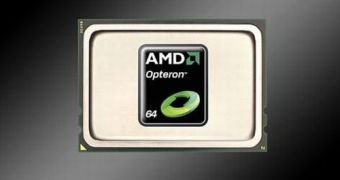Advanced Micro Devices has announced a decision to change its roadmap for server processing units, though it did not give a specific reason for this.
The update plans do away with certain chips and, one might say, slows down the rate at which new Opterons get to the selling stage.
One change is that the existing server platform will remain in effect throughout both 2012 and 2013, meaning that AMD-based systems won't be able to adopt new features as fast as the prior roadmap implied.
Also, Sepang units with up to 10 cores, as well as Terramar chips of up to 20 cores, have been effectively canceled, even though they were supposed to show up this year, alongside G2012 and C2012 server platforms.
Now, though, the Sunnyvale, California-based company is readying Abu Dhabi microprocessors with up to 16 Piledriver cores, for 4-socket servers.
Furthermore, the Seoul CPU is on the way as well, this one featuring up to 8 similar cores. It is intended for 2-socket servers.
There is also talk of the Delhi Piledriver for single-socket machines. It boasts up to 8 cores of its own.
All these chips, and more, will be constructed on the Globalfoundries 32nm SOI manufacturing process.
“AMD’s strategy capitalizes on the convergence of technologies and devices that will define the next era of the industry,” said Rory Read, president and CEO, AMD.
“The trends around consumerization, the Cloud and convergence will only grow stronger in the coming years. AMD has a unique opportunity to take advantage of this key industry inflection point. We remain focused on continuing the work we began last year to re-position AMD. Our new strategy will help AMD embrace the shifts occurring in the industry, marrying market needs with innovative technologies and become a consistent growth engine.”
Whether or not this all works for the best is debatable, for a company that has 5-6% of the server market and, thus, can't really afford stagnation, or to rely overmuch on the 32nm SOI technology that is anything but free of problems.

 14 DAY TRIAL //
14 DAY TRIAL //